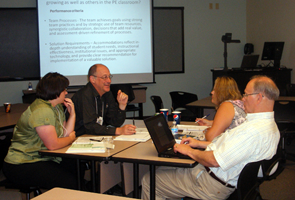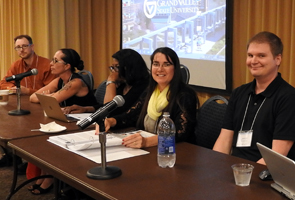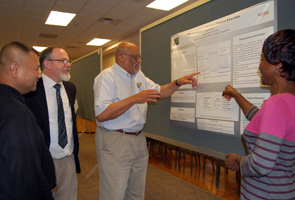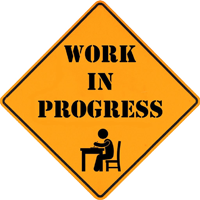

Please note that all session materials will either be included in the conference binder (which every attendee receives) and/or made available online. If you wish to bring handouts that you will distribute during your workshop, you are welcome to do so. If you have prerequisite readings or pre-activities for your workshop, please indicate this in your facilitation plan and be sure to include the readings or activity resources with the package of materials you submit.

These workshops are 90-minute explorations of current scholarship with an eye to advancing pertinent research (additional projects, collaboration, and publications) and must align with and support the conference theme/goals.
Scholarship-Oriented Workshops are intended to stimulate a research mindset across all Academy members and to expand Academy research program. Workshops will be offered for up to fifty participants in a room that can accommodate six to eight participants per table. Submitted proposals for these workshops need to articulate what type of research activity the participants will be doing. Research-Oriented Workshop results should align with the Academy research program, so if you have any question about that, please contact The Academy Director of Research, David Leasure.
All proposals must be submitted through the submission form by Jan. 2. This form will ask for the following:
All final submissions must be sent through the submission form by April 1. These materials should include:

These 90-minute workshops model some aspect of Process Education practice by presenting an active learning experience that can be transferred or adapted to participants' campuses. The workshop experience should model PE principles and be explicitly designed so that participants can facilitate a similar workshop on their own campuses. Workshops should be able accommodate up to fifty participants in a room with six to eight participants per table. Workshop proposals need to articulate transformational learning outcomes and model the practices being conveyed. Workshops must align with and support the conference theme/goals.
All proposals must be submitted through the submission form by Jan 2. This form will ask for the following:
All final submissions must be sent through the submission form by April 1. These materials should include:

For each of the Symposium topics, a facilitator will provide the opportunity for each panel member to present a 5-minute overview of their Big Idea (which will already be available in the program binder). After these overviews, there will be a lively 60-minute facilitated discussion among the panel members, with the goal of expanding understanding, challenging assumptions, and making new discoveries.
All proposals must be submitted through the submission form by Jan 2. This form will ask for the following:
All final submissions must be sent through the submission form by April 1. These materials should include:

Create posters that represent a key innovation in inspiring learning environments to share with conference participants. Each poster session presenter will interact with the conference attendees for 45 minutes to discuss their innovation/idea. Please be sure to clearly identify your innovation, scholarship, work in progress, or institutional change to ensure it fits into the context of Process Education and the conference theme. You can prepare handouts or other resources for participants who visit your poster.
Template Sample Sample other materials and
All proposals must be submitted through the submission form by Jan 2. This form will ask for the following:
All final submissions must be sent through the submission form by April 1. These materials should include:

These discussion sessions will include a selection of three papers focused on a particular theme. Authors will present a 10-minute overview of their paper and then participate in a facilitated 60-minute discussion with session participants. (Conference participants will have already read the research papers.)
Sample Research Papers may be found in the current or previous editions of the International Journal of Process Education.
All proposals must be submitted through the submission form by Jan 2. This form will ask for the following:
All final submissions must be sent through the submission form by April 1. The packet you submit should include the following with a MAX length of 7 pages or 4,000 words:

A 30- minute time period will be provided within a 90-minute session, where three like minded work-in-progress will be shared with participants. Proposals for work-in-progress sessions will automatically be accepted if the session supports the conference theme. You will be given 10 minutes to share information and then 10 minutes to share questions to seek audience feedback to guide future efforts. The final 10 minutes of the session will be allocated to audience-generated questions that should further deepen participant engagement. Work-in-Progress sessions will have a facilitator to guide the discussion through these phases.
All proposals must be submitted through the submission form by Jan. 2. This form will ask for the following:
All final submissions must be sent through the submission form by April 1. These materials should include:
The packet you submit should include the following:
Copyright © 2018 - All Rights Reserved - Academy of Process Educators
Template by OS Templates